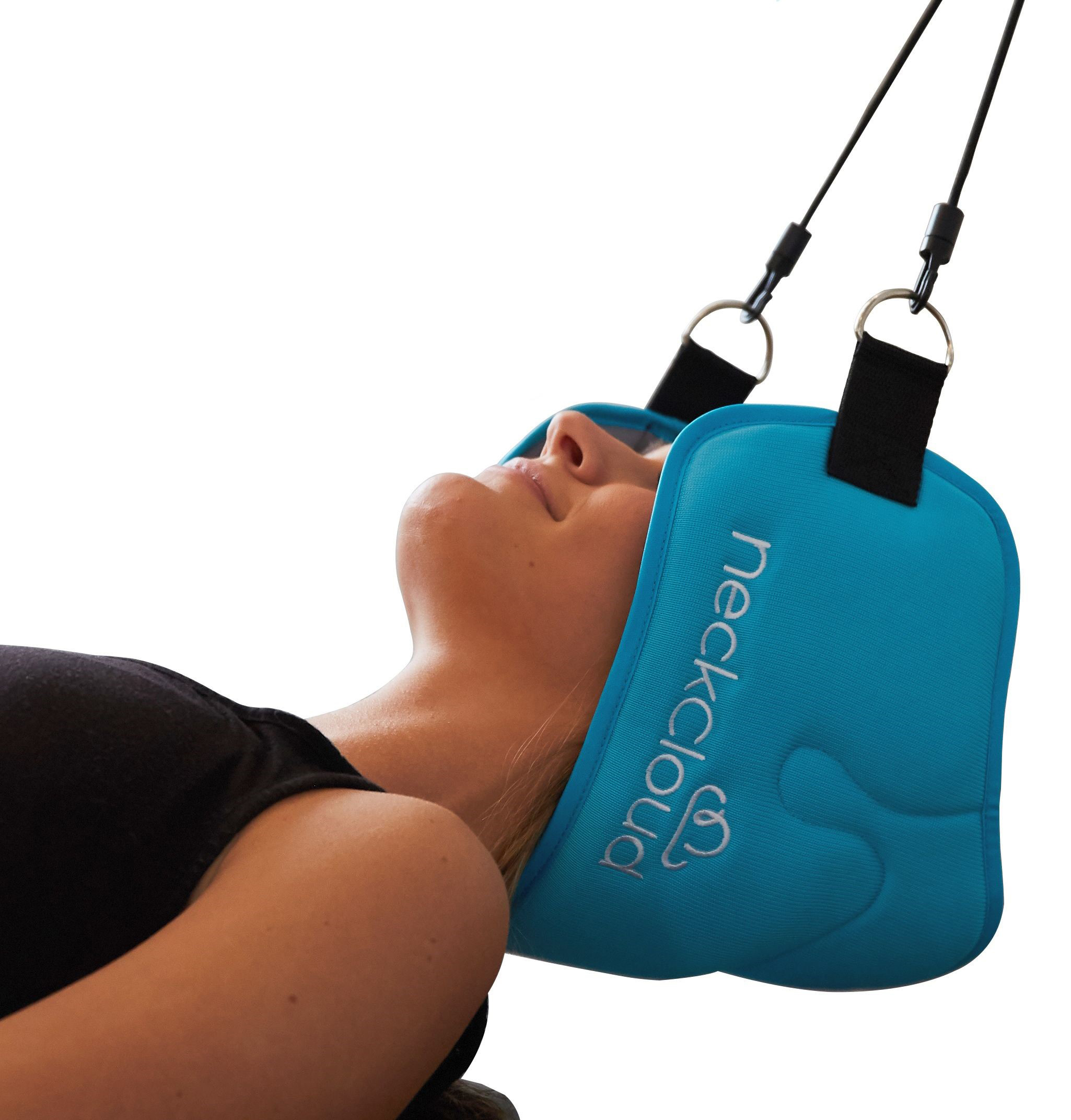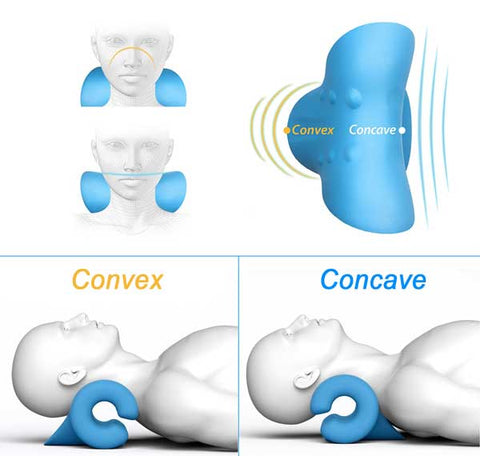Neck Cloud for Cervical Assistance: Relax and Alleviate Neck Discomfort
Neck Cloud for Cervical Assistance: Relax and Alleviate Neck Discomfort
Blog Article
The Influence of Stress And Anxiety on Neck Pain: Approaches for Lowering Tension and Discomfort
In today's hectic globe, it's clear that stress and anxiety has come to be a prevalent variable in the onset and worsening of neck pain. The detailed relationship between stress and muscle mass stress typically leaves individuals seeking remedy for the pain that ensues. By checking out targeted strategies targeted at minimizing stress and promoting relaxation, one can begin to deal with the origin of neck pain and work in the direction of an extra balanced state of wellness. Join us on a trip to untangle the influence of tension on neck pain and find reliable means to reduce discomfort and boost total quality of life.
Comprehending Stress-Related Neck Pain
Stress-related neck discomfort can materialize as stress, rigidity, or pain in the neck and shoulder area. The connection between stress and neck discomfort lies in the body's physical feedback to anxiety, which can result in muscle mass stress and rigidity in the neck muscles.

Identifying Common Tension Locations
Frequently experienced by people under stress, stress locations in the body can offer valuable insights right into the physical manifestations of mental pressure. One common stress location is the neck, where tension often materializes literally. Tension migraines, tight neck muscles, and restricted variety of motion are typical signs and symptoms of stress-related neck tension. The shoulders are one more usual location where tension builds up. Anxiety can cause the muscle mass in the shoulders to tighten up, bring about discomfort and pain. In addition, the top back is prone to tension accumulation, specifically in individuals who experience chronic anxiety. Poor posture and prolonged sitting can exacerbate tension in this location. The jaw is additionally a common area for stress-related stress, as many individuals clinch their jaw or grind their teeth when worried. Recognizing these common tension areas can assist people identify the physical indicators of stress and take steps to address them before they escalate right into chronic discomfort or pain.
Executing Relaxation Techniques
To efficiently take care of stress-related tension in the body, executing relaxation techniques is essential. Relaxation strategies are useful tools for decreasing neck pain brought on by tension. Deep breathing exercises can help relax the mind and loosen up stressful muscle mass in the neck and shoulders (neck cloud). Practicing mindfulness meditation can additionally be valuable in relieving anxiety and advertising relaxation. Progressive muscular tissue leisure, where you systematically stressful and afterwards unwind various muscle mass groups, can launch built-up tension in the neck area. Additionally, tasks like yoga and tai chi include both physical motion and relaxation, making them efficient practices for minimizing tension and neck discomfort. Taking routine breaks throughout the day to stretch and unwind can prevent muscular tissue tightness and stress from accumulating. By integrating these leisure methods right into your everyday regimen, you can assist take care of stress levels, minimize stress in the neck, and ease discomfort connected with stress-induced neck discomfort.
Integrating Self-Care Practices
Integrating self-care techniques is essential for preserving overall well-being and managing stress-related neck discomfort properly. Participating in normal exercise, such as gentle stretching exercises or yoga, can assist relieve tension in the neck and shoulders. Practicing good position throughout the day and taking regular breaks from extended resting or display time can also stop pressure on the neck muscular tissues.
Furthermore, prioritizing sufficient sleep and establishing a consistent sleep regimen can contribute considerably to decreasing tension degrees and advertising leisure. Producing a soothing bedtime routine, such as reading a publication or taking a cozy bathroom, can help prepare the mind and body for relaxed sleep. Additionally, preserving a Source well balanced diet regimen rich in nutrients and staying moistened can support general wellness and minimize inflammation that might aggravate neck pain.
Incorporating mindfulness techniques, such as deep breathing workouts or meditation, can aid take care of anxiety and advertise relaxation. Taking time for oneself, taking part in leisure activities, and setting boundaries to secure personal time are additionally crucial facets of self-care that can add to reducing stress and anxiety and relieving neck discomfort.
Seeking Expert Help
How can individuals properly address consistent neck discomfort that is impacting their everyday life and health? Seeking professional aid can be an essential action in handling and alleviating neck pain.
Chiropractors specialize in spine adjustment techniques to improve positioning and minimize stress in the neck area. Physiotherapists supply targeted stretches and exercises to strengthen muscle mass, enhance versatility, and boost total neck feature. Orthopedic professionals can provide innovative medical interventions such as shots or medical options for serious cases of neck pain.
Final Thought

Stress-related neck discomfort can show up as tension, stiffness, or discomfort in the neck and shoulder area. The connection between tension and neck pain lies in the body's physical action to anxiety, which can result in muscular tissue stress and rigidity in the neck muscular tissues. Stress migraines, rigid neck muscle mass, and limited variety of movement are typical signs of stress-related neck tension. By integrating these relaxation techniques into your daily regimen, you can aid handle anxiety levels, minimize stress in the neck, and ease discomfort connected with stress-induced over here neck pain.

Report this page